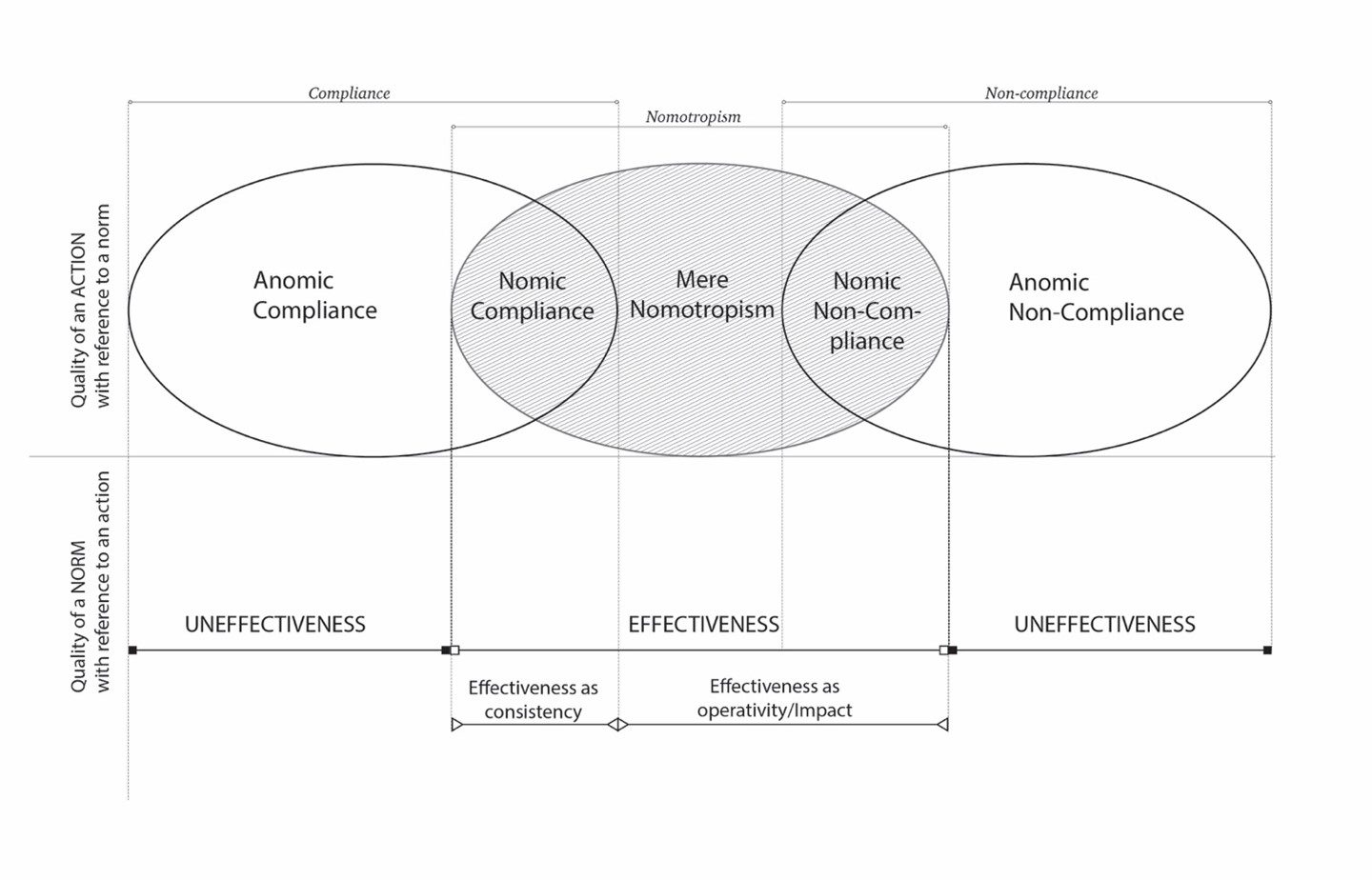the paper aims to contribute to the theoretical investigation of the nexus between law and space in the field of legal geography by proposing an analytical framework for the study of the spatial operativity of law beyond complianceThis paper explores the complex ways in which a legal norm can influence a socio-spatial context. More precisely, the paper aims to contribute to the theoretical investigation of the nexus between law and space in the field of legal geography by proposing an analytical framework for the study of the spatial operativity of law beyond compliance. To do so, this work relies on the concepts of nomotropism (namely, “acting in light of the rule”) and effectiveness–as–operativity. They imply that (1) any legal norm that has a causal relation with an action can be deemed effective regardless of whether such action conforms with or transgresses such norm, and (2) the impact of a norm is not confined to mere compliance. The paper then articulates the analytical framework derived by these theoretical insights with reference to different kinds of norms (law in actu and law in intellectu; law in books and law in practice). The relevance of the resulting theoretical structure for the investigation of complex socio-spatial phenomena is finally exemplified through the analysis of a conflictual process for the establishment of a Muslim place of worship in Italy.

